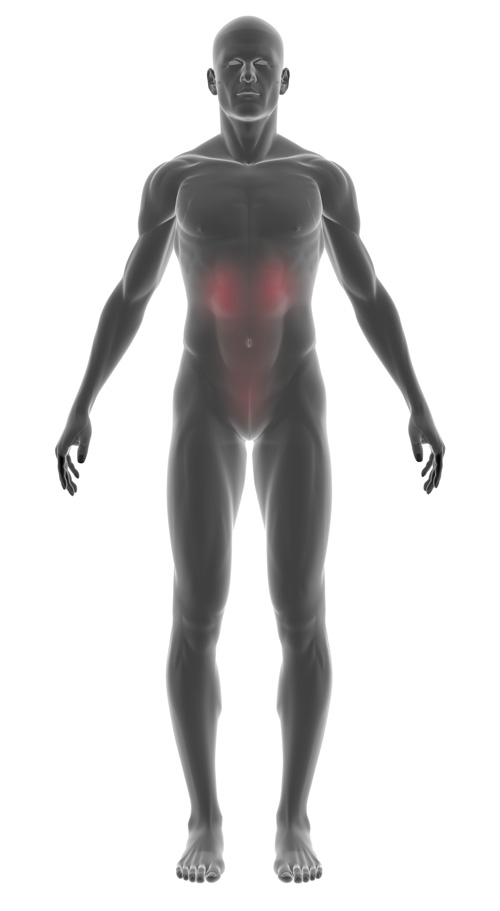Kidney Stones
Incidence and causes
10-15 per cent of people suffer from kidney stones at some stage in their lives. In Switzerland this disease appears for the first time in as many as 30,000 people per year. The incidence is slightly higher in men than women.
The origin of kidney stones is complex – as well as genetic factors that are not yet fully understood, environmental and dietary influences play a particularly important role. Kidney stones usually develop when the composition of a person’s urine is poor so that barely soluble substances concentrate, crystallize and hence form into stones. There are various types of kidney stones, which are differentiated by their composition.
Typical symptoms of kidney stones
The most dramatic manifestation of kidney stones is renal colic when a stone is no longer able to pass through the narrow ureters that lead from the kidney to the bladder. Renal colic pains are among the most severe a person can experience, only comparable to the pains of childbirth. Together with the intense pain, the immovable obstacle can lead to reflux of urine, which can spread upwards into the kidney and damage it.
Diagnosis
Kidney stones can be detected by various imaging techniques, depending on the type of stones. At the same time various blood and urine tests are carried out to find out more information. As the type of kidney stone provides information about the cause of the stone formation and the nature of future treatment, a stone analysis is done on all kidney stones, if possible, in order to find out their composition.
Treatment options
Pain-killers – of varying strength depending on the situation – are used in the acute situation to treat renal colic. Further on, the stones will have to be removed from the urinary tracts. Small stones might be passed spontaneously through the urinary tracts – occasionally supported by medication. If this does not happen, they can be crushed using different technical, endoscopic or surgical methods, after which the fragments are also passed out with the urine or are directly removed by a suitable procedure.
Without appropriate treatment, around 40-50% of all kidney stone patients will suffer a relapse within 5 years. To prevent renewed episodes of kidney stones, patients must keep an eye on their ongoing diet and drinking habits because these can have an influence on the risk of kidney stones. As a basic principle: avoid excessive meat consumption (maximum once a day); eat fruit and vegetables every day, consume in moderation food and drinks that are rich in oxalic acid (black/green tea, iced tea, spinach, rhubarb, peanuts, almonds, pistachios, wheat bran products, dark chocolate); no restriction on calcium intake; regular high fluid intake, guaranteeing that you excrete at least two litres of urine per day.
Apart from dietary measures, the risk of stone formation can be reduced by certain drugs, which counteract the mechanism by which kidney stones are formed.


